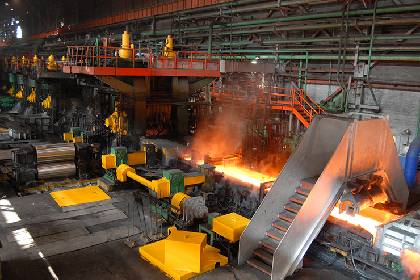The bankruptcy of Mexican steelmaker AHMSA remains unresolved after one year, delaying the $1.32 billion asset sale and destabilizing Mexico's steel supply. The shutdown has pushed steel prices up by as much as 18 percent and forced domestic buyers to rely heavily on US, Chinese and Brazilian imports. Investors remain cautious due to required modernization costs and new US tariff risks, while over 15,000 jobs and 1,700 creditors depend on a swift resolution.

Investor caution slows progress of asset sale
According to a report by El Financiero, although the trustee overseeing the bankruptcy has stated that the sale process is proceeding, several obstacles have delayed progress. Market conditions, investor risk perception and significant capital expenditure requirements have collectively slowed negotiations.
The report noted that AHMSA’s revival would require extensive modernization in energy systems and environmental compliance - investments that many buyers are assessing cautiously. Equipment such as the normalized mill, steckel mill, and electric furnace has attracted interest from buyers including Ternium, DeAcero and Villacero, yet no final agreements have been executed.
On the other hand, trustee Víctor Manuel Aguilera Gómez warned that recent tariffs imposed by the US under Donald Trump could discourage potential buyers. These tariff uncertainties add an additional layer of complexity to the sale, potentially delaying the process further.
Mexico forced to rely on more Asian steel
While Mexico has long imported steel due to insufficient national capacity, AHMSA’s collapse has widened this deficit. Imports from Asia have increased, complicating downstream exports to the US as Mexican manufacturers deal with higher costs and supply volatility. The report emphasized that any investor stepping in must focus on efficiency, sustainability and developing high-value steel grades to remain competitive in a global market shaped by China’s dominance.
Regional and national pressure to resolve the crisis
The federal government maintains that the AHMSA case must be resolved under strict bankruptcy laws, without direct intervention. However, officials in Coahuila argue that swift action is crucial to protect more than 15,000 jobs directly and indirectly tied to AHMSA’s operations. Local leaders consider the plant’s revival essential to stabilizing the regional economy.